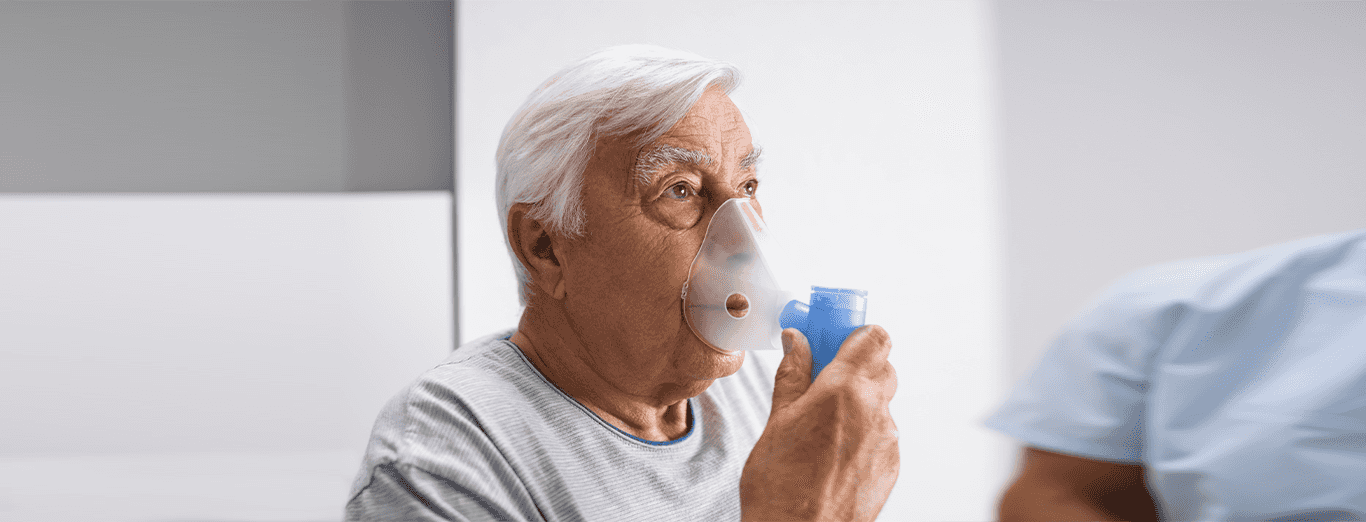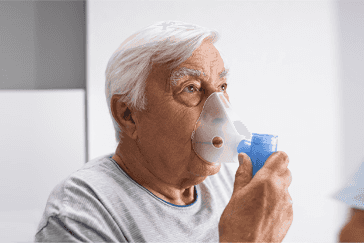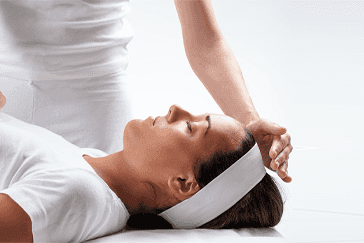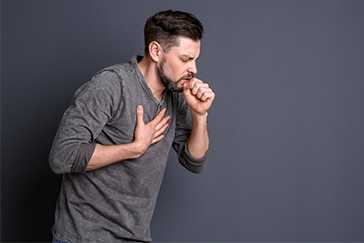
Expert Physiotherapy at Home
Certified physiotherapists visit you at home to provide focused, one-on-one care tailored to your needs. With no travel or waiting rooms, recovery happens in a setting that is comfortable, familiar, and built around your convenience.
Personalised Recovery Programmes
Every treatment plan is designed to suit your condition, goals, and pace. Our physiotherapists follow structured, evolving protocols to ensure consistent progress, with each session aligned to deliver meaningful results.
Trusted Physiotherapists. Real Results.
Our team comprises experienced, background-verified physiotherapists trusted by thousands of families. With a strong focus on safety, reliability, and clinical outcomes, we make recovery at home both effective and reassuring
Patient Testimonials
Portea Physiotherapists for Home Visits
Meet some of our experienced and dedicated healthcare professionals

Dr. Lokesh G
Physiotherapist
Specializations
Experienced in Neurological rehabilitation, Orthopaedic physiotherapy, and Paediatric care
Delivers structured, high-impact treatment plans across neuro, ortho, and paediatrics—ensuring safety, comfort, and measurable recovery at every stage.

Dr. Mohammed Sarwar
Physiotherapist
Specializations
Experienced in Neurological rehabilitation, Adult physiotherapy, and Paediatric care
Combines deep clinical expertise with a compassionate approach, supporting both adults and children through neuro and physical rehabilitation that promotes long-term independence and recovery.

Dr. Nelapati Divya
Physiotherapist
Specializations
Skilled in Orthopaedic rehabilitation, Manual therapy techniques, and Paediatric physiotherapy
Brings a personalised, hands-on approach to healing—combining structural expertise with paediatric sensitivity to restore movement, relieve pain, and improve everyday function.

Dr. Naveen V
Physiotherapist
Specializations
Trained in Pain management, Cardiac and Orthopaedic rehabilitation, Neurological care, and Neural tissue mobilisation
Brings clinical precision and empathy together—designing science-backed recovery protocols for pain relief, nerve mobilisation, and cardio-neuro-ortho rehabilitation across all age groups

Dr. Miloni Savla
Physiotherapist
Specializations
Holds an MPT in Orthopaedics with a focus on Musculoskeletal rehabilitation and strength recovery
Delivers focused, movement-oriented therapy grounded in orthopaedic science—helping patients rebuild strength, restore function, and return to daily life with confidence
Other Cities
Physiotherapy Treatments

what is pulmonary rehabilitation?
Pulmonary rehabilitation is a broad term used to describe a program of exercises and education to help a person manage lung diseases, breathe easy, and improve the quality of life.
who can benefit from pulmonary rehabilitation?
Pulmonary rehabilitation benefits people who suffer from diseases of the airway, lung tissue, and lung circulation like:
- Chronic obstructive pulmonary disease (COPD)
- Asthma
- Lung infections like pneumonia
- Pulmonary edema (abnormal build-up of fluid in the lungs)
- Pulmonary hypertension
- Pulmonary embolus (blocked lung artery)
- Pneumothorax or atelectasis (collapse of parts or the entire lung)
- Cystic fibrosis
- Scoliosis
- Any other conditions that impair functions of the lung
- If you have undergone surgery for lung transplant or lung cancer
These Might be of Interest
what are the symptoms of pulmonary diseases?
The symptoms of pulmonary are not too apparent until the disease has progressed resulting in lung damage. They are usually progressive in nature. Some of the common signs and symptoms to look out for include:
- Shortness of breath, at rest, and during physical activities.
- Tightness in the chest.
- Wheezing.
- Frequent infections of the respiratory system.
- A persistent cough that produces mucus that is greenish, white, or yellow. The cough may also through up a few droplets of blood at times.
- Swelling in the ankles, legs, or feet.
- Unintended weight loss.
what are the causes of pulmonary diseases?
There can be several underlying causes of pulmonary diseases. Some of the most common causes include:
- Staying in a polluted environment.
- Low immune functioning.
- Viral, fungal, or bacterial infections.
- Inappropriate development of the lungs before birth.
- Adverse climatic conditions.
- Prolonged exposure to smoke, asbestos, and toxic fumes.
- Smoking
- Obesity and the presence of excessive weight on the stomach and chest.
- Neuromuscular disorders like amyotrophic lateral sclerosis and myasthenia gravis.
- Pulmonary hypertension or high blood pressure in your arteries.
how are pulmonary diseases diagnosed?
If you have been experiencing any of the above-mentioned symptoms or fall in any of the risk categories, it is critical to consult a doctor. If left untreated, pulmonary issues can lead to life-threatening issues like high blood pressure, right-sided heart failure, and respiratory failure.
You doctor may use any of the following tests to confirm the diagnosis of pulmonary issues:
- Bronchoscopy and bronchoalveolar lavage.
- Chest CT Scan
- Chest MRI
- Chest X-Ray
- Needle biopsy of the lung
- Lung function tests
- Spirometry
how are pulmonary diseases treated?
Depending on the severity of the conditions, age of the patient, the underlying causes, and the overall health of the patient, the lines of treatment are decided. Some of the common treatments that are involved include:
- Bronchodilators: These medicines are given in an inhalant form to help relax the muscles around the airways. They also help in relieving coughing and shortness of breath.
- Inhaled steroids: These can help in reducing inflammation of the airways and help prevent lung-related complications like hoarseness, bruising, and oral infections.
- Antibiotics: These medicines are extremely helpful in managing pneumonia, bronchitis, influenza, and aggravated COPD symptoms.
how does physiotherapy help in pulmonary rehabilitation?
Once your treatment for pulmonary diseases has started, it is critical to manage the disease and its symptoms. Pulmonary rehabilitation physiotherapy has proved to be a great solution in managing several types of respiratory disorders. Several strategies, techniques, and methodologies are used to help the patient to improve their health, quality of life, and ability to manage daily activities without hindrances.
The benefits of physiotherapy include:
- It helps a patient in getting educated about their condition and risk factors associated with it.
- Physiotherapy exercises help in improving lung functions like shortness of breath, wheezing, coughing, etc.
- It helps in reducing the stress, anxiety, and depression that may occur in the patients due to the painful symptoms of pulmonary diseases.
- When done at home, it helps in healing faster, saving costs, reducing the risk of infections, and relieving the caregivers.
- When performed in groups, it helps in building emotional support groups that help in coping with the disease and its symptoms better.
- It helps patients learn the correct way to use assistive oxygen therapy devices like inhalers, nebulisers, and maintaining the right dosage of medicines, etc.
- Physiotherapy teaches strategies for performing daily activities, maintaining your mobility, and living better with pulmonary diseases.
- Since the cessation of smoking is an essential of any pulmonary rehabilitation program, it helps one in living healthier without the harmful effects of cigarettes.
- It educates the patients about following a healthy diet that helps in losing weight and staying healthier.
what does pulmonary rehabilitation include?
The cause of your pulmonary disease, age, overall health, etc. decide what gets included in your pulmonary rehabilitation program. It may include:
- Respiratory rehabilitation exercises: These are breathing techniques that improve your patterns and quality of breathing and in increasing your oxygen levels and open up your airways. These include exercises like pursed-lip breathing, coordinated breathing, deep breathing, belly breathing, etc.
- Exercises: Your therapist will design an exercise plan specific to your condition and symptoms to help your muscles gain strength and in improving your endurance to complete day-to-day activities. These include light aerobics, swimming, resistance exercises, cycling, skating, walking, etc.
- Energy-saving techniques: These techniques are extremely helpful in letting you do your daily activities without feeling shortness of breath or bouts of coughing. These include techniques on how to reach out to pick up things, lifting, bending, etc. without using too much energy or tightening your muscles excessively.
- Nutritional counselling: Since being overweight has a great impact on having issues while breathing, your therapy will also include sessions on having a good diet.
- Education about your condition: Your therapist will educate not only you but also your family and caregivers about your condition, risk factors that may exacerbate your symptoms, how to avoid infections, how to take your medicines, and how to use assistive devices effectively.
- Psychological counselling: It is a scary situation when one is not able to breathe and may lead to anxiety, stress, and even depression. Your therapist will help you overcome your fear, triggers that cause stress, and help you keep a positive outlook.
what is the role of a therapist in pulmonary rehabilitation?
The therapist plays an extremely vital role in the rehabilitation of a patient of pulmonary conditions. They use, prescribe, supervise, measure, and implement strategies that help patients in leading a better quality of life.
The role of a therapist includes:
- She/he will assess your condition, symptoms, age, trigger factors, etc. and create a customised therapy plan for you. Since the plan is specific to your needs, it will help you in healing faster.
- Presence of a therapist helps you in being consistent with your therapy without any chances of missing out on sessions.
- Having a therapist relieves your family members from the stress of managing a condition that they may or may not be trained in.
- Besides helping you with pulmonary exercises, your therapist will also advice you on maintain good nutrition levels, stress management, how to use your assistive devices, etc.
- She/he will guide you on how to tackle unhealthy behaviour like not exercising, smoking, etc. to help you manage your symptoms and maintain good respiratory health.
how can portea help you?
Portea is credited with creating a unique, affordable, and accessible healthcare system that helps in the in-home recovery of patients for a wide range of conditions. One of the most important services that we offer is physiotherapy for pulmonary rehabilitation.
Some of the benefits of our physiotherapy services include:
- Through Portea, you can access the services of the most reliable, professional, and experienced physiotherapists who are committed to putting you back on the road to recovery.
- Our expert therapists assess and understand your condition, overall health, trigger factors, and then create customised therapy plans for you. This helps to ensure that you heal faster and more effectively.
- We adhere to global medical protocols and standards and don’t compromise on the health and safety of our patients.
- All the plans suggested by our therapists are goal-based with tangible outcomes. This is not possible when a patient self-designs physiotherapy programs for himself.
- Since our therapists visit you at home, you can heal in the comfort and convenience of your house amongst familiar faces. This helps in saving the hassles of travelling, reduces your waiting time, does away with the risk of catching infections, and saves travel costs.
- Your search for pulmonary rehabilitation near me services ends with Portea. Whether you live in a metro city or the interiors, you can avail of our services at a place of your convenience.
- Our therapy plans are quite economical as compared to getting hospitalised for therapy. They have been found to be almost 25-30 percent cheaper. This is beneficial when you have been recommended long-term therapy.
- Our therapists are trained in providing supplemental oxygen, noninvasive mechanical ventilation, neuromuscular electrical stimulation, resistive training, exercise training, and other latest techniques to help you manage and better your respiratory health.
- With our therapists visiting your home, you can be more consistent with your rehabilitation plan. This is not possible in the absence of any specific and regular intervention.
- You can relieve your family members, who may or may not be trained, from the responsibility of your rehabilitation.
References
Doctor Consultation
Nursing
Physiotherapy
Trained Attendant
Elder Care
Mother & Baby Care
Lab Tests
Medical Equipment
Speciality Pharma
Critical Care








